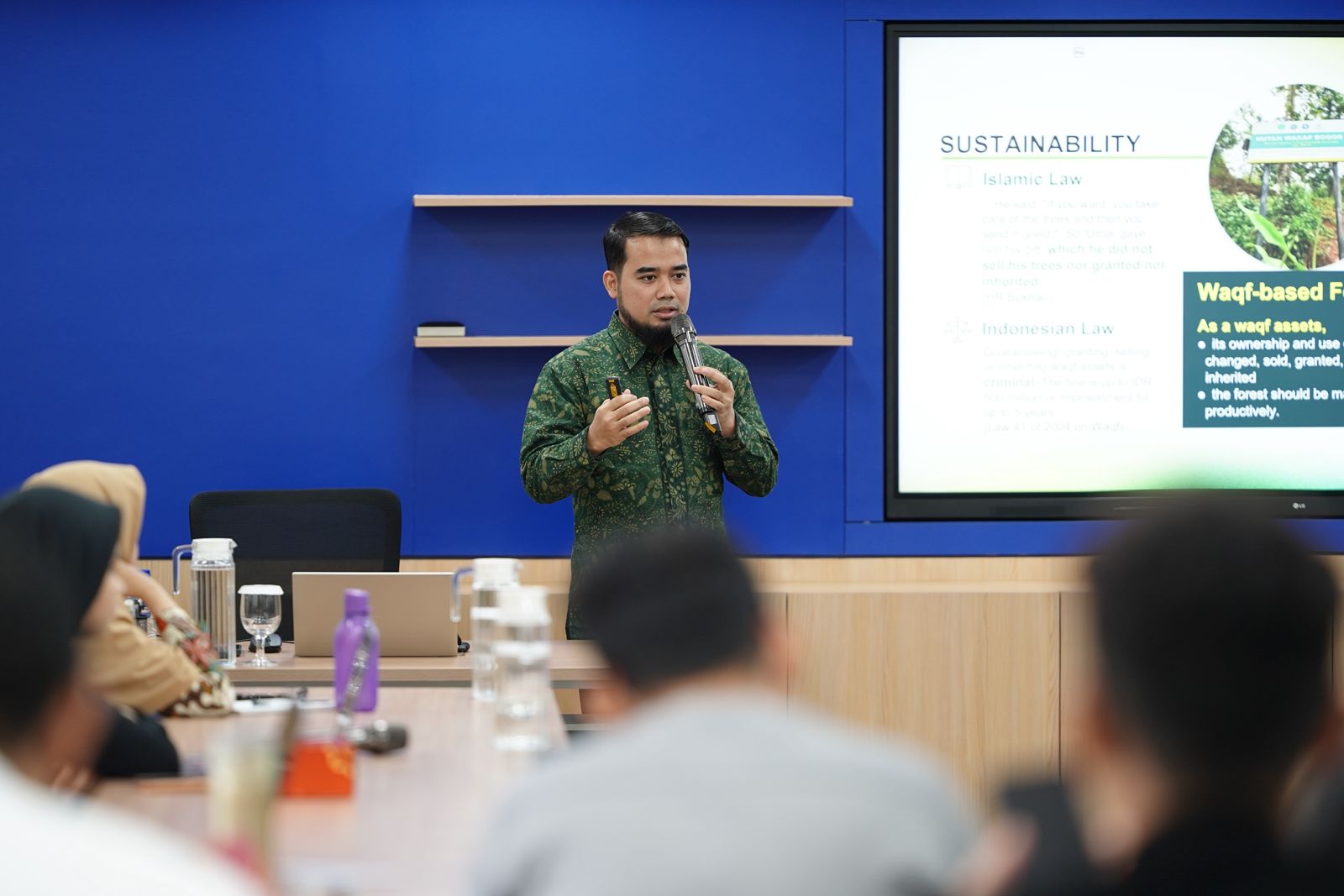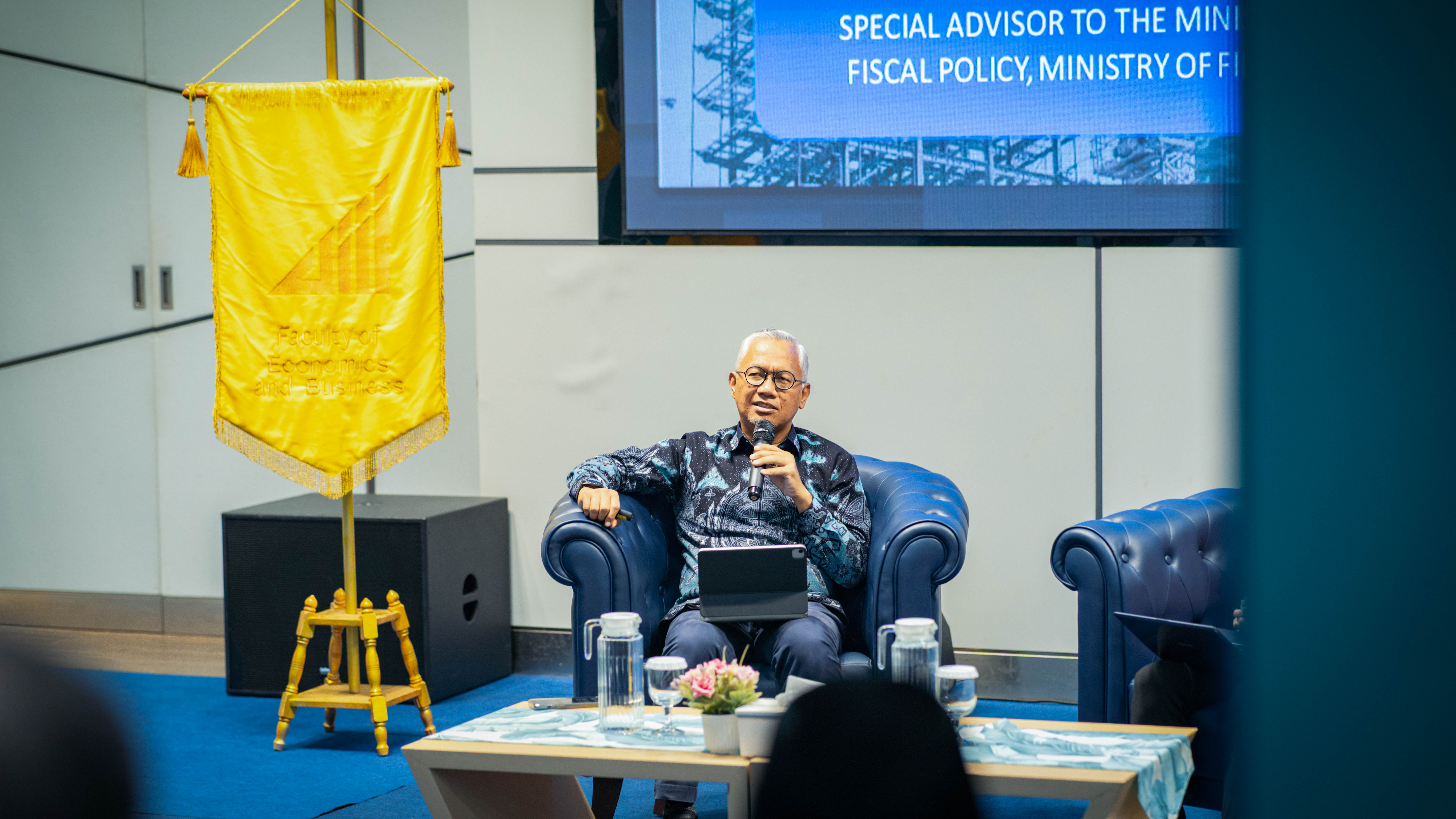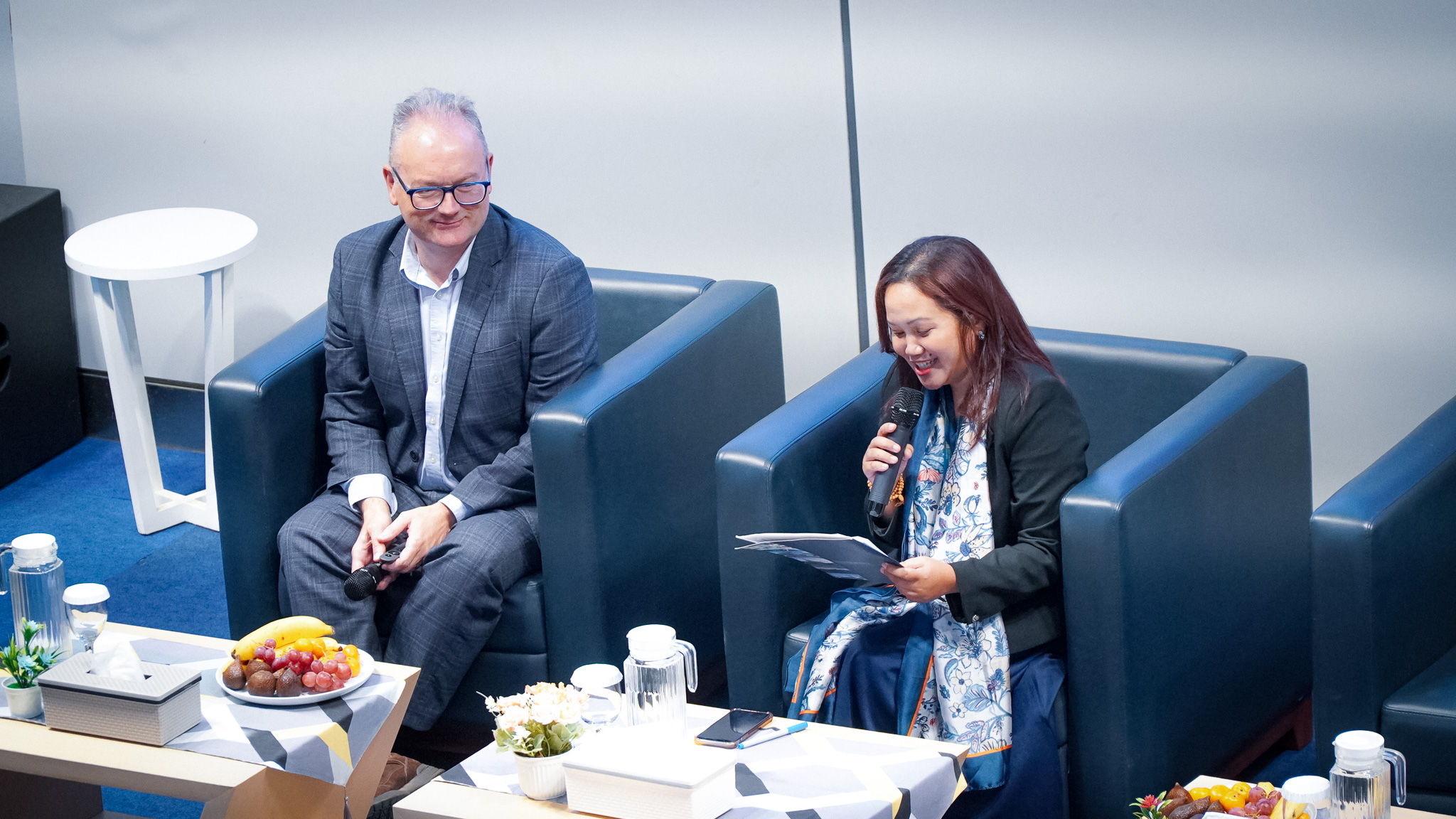Improving Social Welfare and Development Through Zakat and Waqf
December 30, 2024Contributor: Sihabudin Nf | Editor: Supriyono | Photo: Moh. Alfi Fauzilah
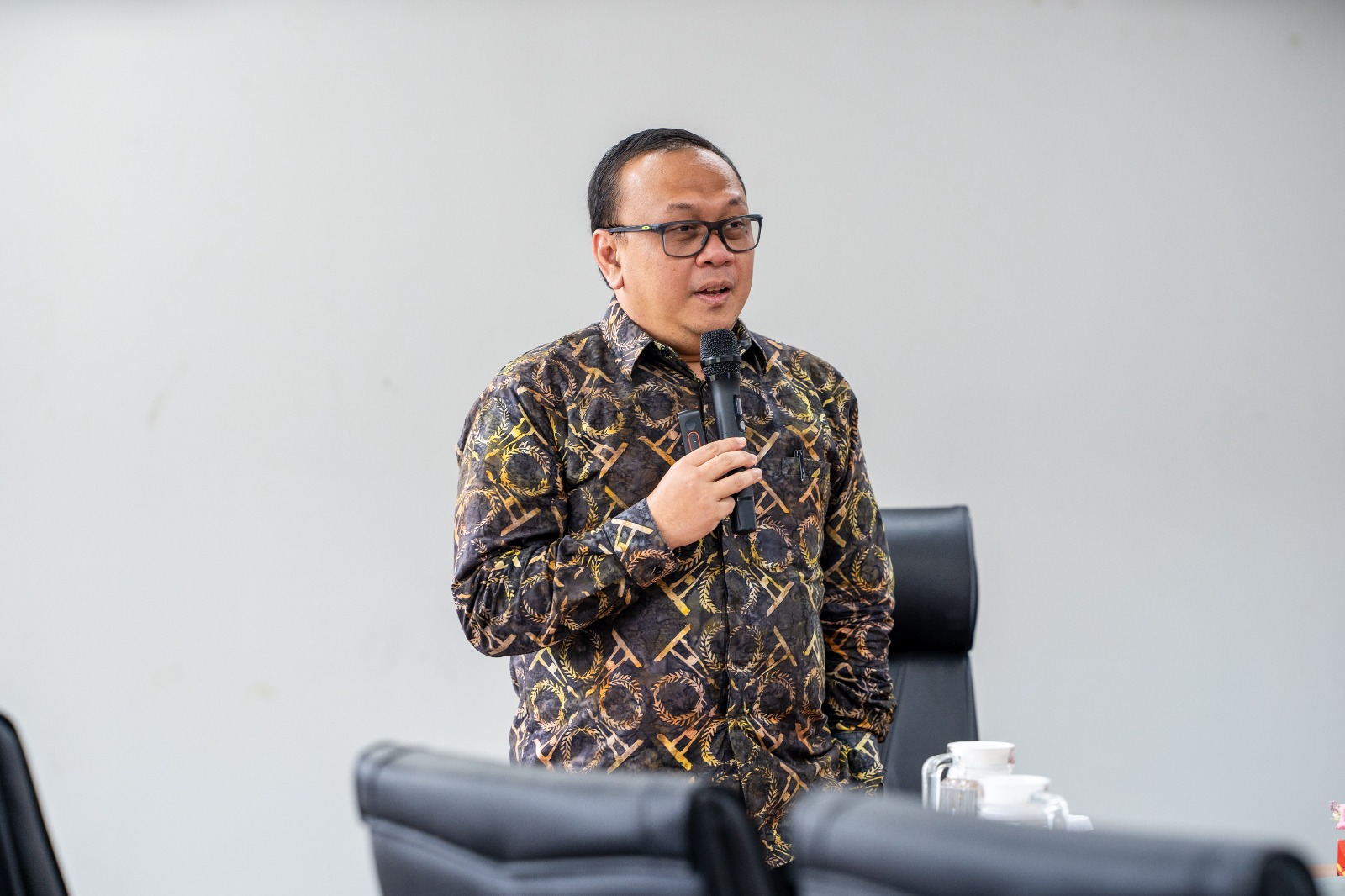
One of the most effective ways to drive social welfare and economic development is through the Islamic financial instruments of Zakat (mandatory annual almsgiving) and Waqf (voluntary charitable endowment). This was the central argument of Dr. Irfan Syauqi Beik, Dean of the Faculty of Economics and Management at Bogor’s IPB University, during the SF Update Talks organized by the UIII Faculty of Economics and Business.
In the first session of the talks, Dr. Beik introduced zakat as part of the concept of the 'Maslahah-oriented Economic Man', an Islamic economic principle that emphasizes using maslahah (public interest) as a benchmark in economic activities. Maslahah refers to preserving the objectives of Sharia, attaining benefits, and preventing harm.
In this regard, Dr. Beik argued that zakat possesses the three key principles of ‘Maslahah-oriented Economic Man’, namely ‘Optimum Benefit’ that ensures the maximum good for both individuals and society; ‘Sustainable Goodness’ as it creates long-lasting and continuous welfare benefits; and ‘Minimization of Harm’ (Mafsadah) for it can actively reduce risks and negative impacts.
Additionally, he cited the ushul fiqh principle, "Dar'ul mafasid muqaddamun 'ala jalbil mashalih," meaning "Preventing harm takes precedence over pursuing benefits." This principle underscores the importance of preventing significant harm before seeking greater good, acting as a balancing force between social justice and economic policies.
Dr. Beik also compared the philosophy of zakat with international frameworks such as Environmental, Social, and Governance (ESG) investing and the Sustainable Development Goals (SDGs). He noted that zakat, in its unique way, aligns with these global initiatives by promoting equitable income distribution, environmental stewardship, and sustainable development, ultimately contributing to the welfare of the Ummah (community).
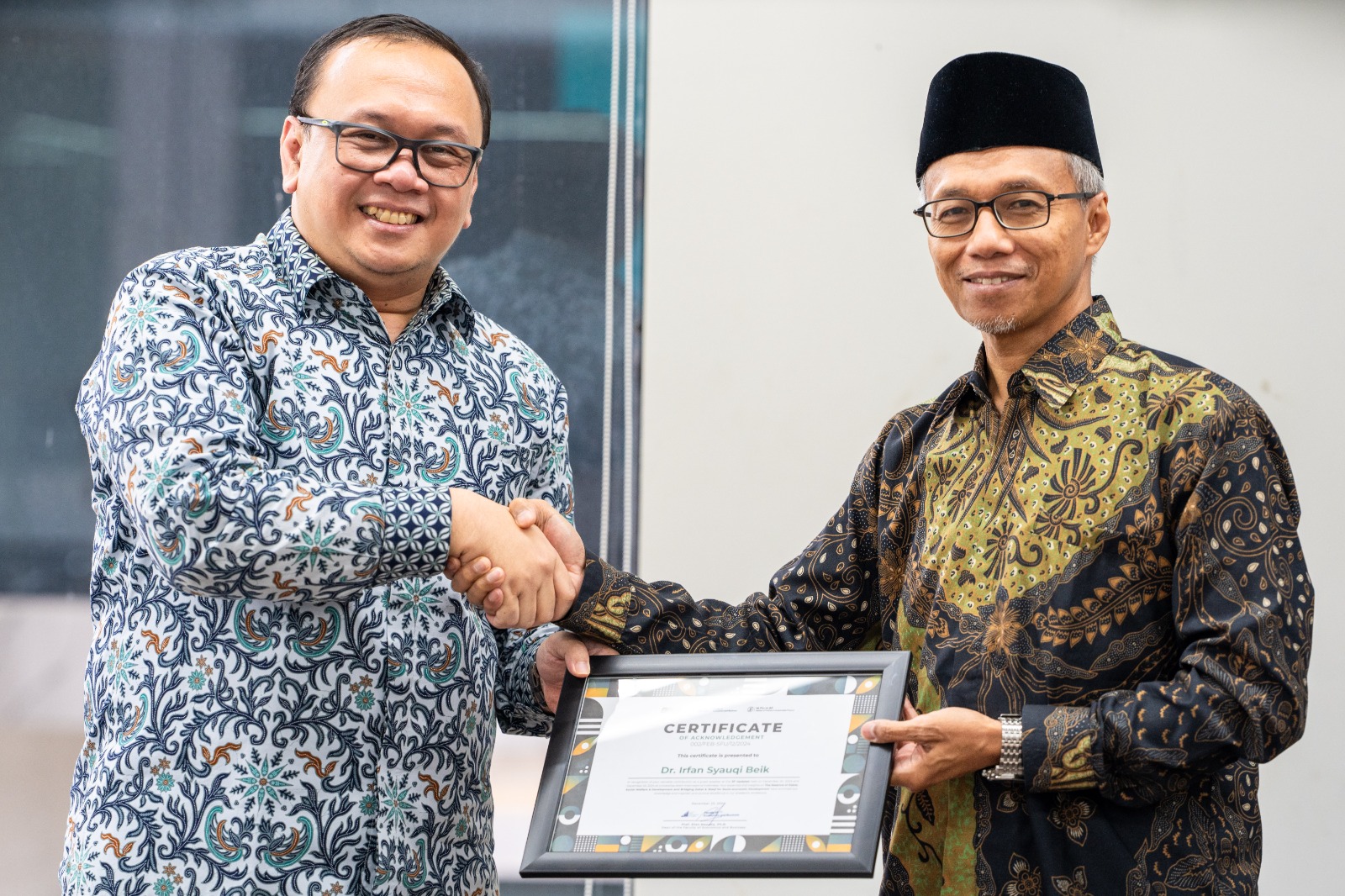
In the second session, Dr. Beik shifted focus to Waqf and its central role in achieving sustainable development, explaining that the nature of Waqf is Jariyah that is yielding benefit after benefit.
Traditionally, donations of Waqf are in the form of land and are used for mosques or schools. However, he identified two models of Waqf in temporary ownership: pure social and commercial/productive approaches. A pure social approach is a model with the sole objective of serving social purposes, while a commercial/productive approach is a model aimed at generating income through business models or hybrid structures, whether social, financial, or both. Despite their differing approaches, both models contribute to a shared goal: advancing the United Nations' 17 SDGs.
Furthermore, Dr. Beik introduced the Green Waqf concept, an innovative initiative at IPB University. This approach showcases how Waqf assets can be leveraged to achieve ecological balance, promote sustainable development, and deliver significant social and economic benefits to society.
The SF Update Talks with Dr. Beik underscored the evolving roles of Waqf and Zakat in addressing contemporary challenges. He emphasized the need for students, academics, and participants from diverse backgrounds to explore these tools creatively and innovatively to achieve sustainable development goals.
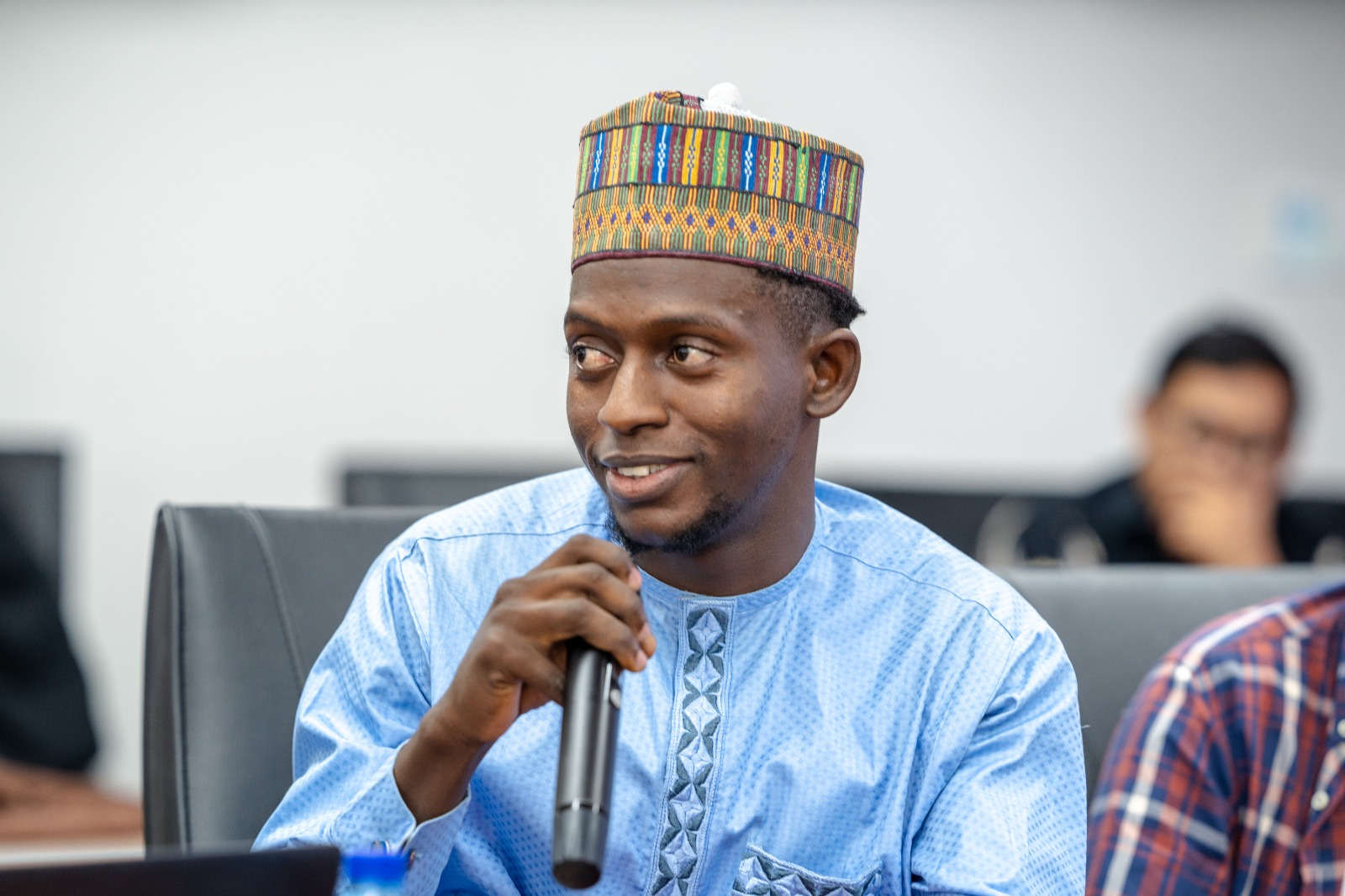
- Grit, Innovation, and Adaptation: Key Themes in FoE’s 3rd Graduate Forum for Education Future
- Student-Led Research Community Series Kick Off with Academic Publishing Session
- Advancing Institutional Governance through Risk Management Training
- A Night of Unity: International Iftar Brings Students Together in Celebration
- Vice Minister Joins Iftar with UIII International Students, Hearing Their Stories
- FisFastFest Showcases ‘TransformMe’ Spirit with Intense Quiz Competition
- Ramadan Unites Us: UIII Hosts Iftar Gathering to Strengthen Bonds
- It’s Time for Africa! UIII Aims to Expand Outreach in African Continent
- Future Innovators Gather at UIII for 1000x Challenge Mentoring & Briefing
- UIII and Al-Azhar Strengthen Ties for the Advancement of Islamic Civilization
